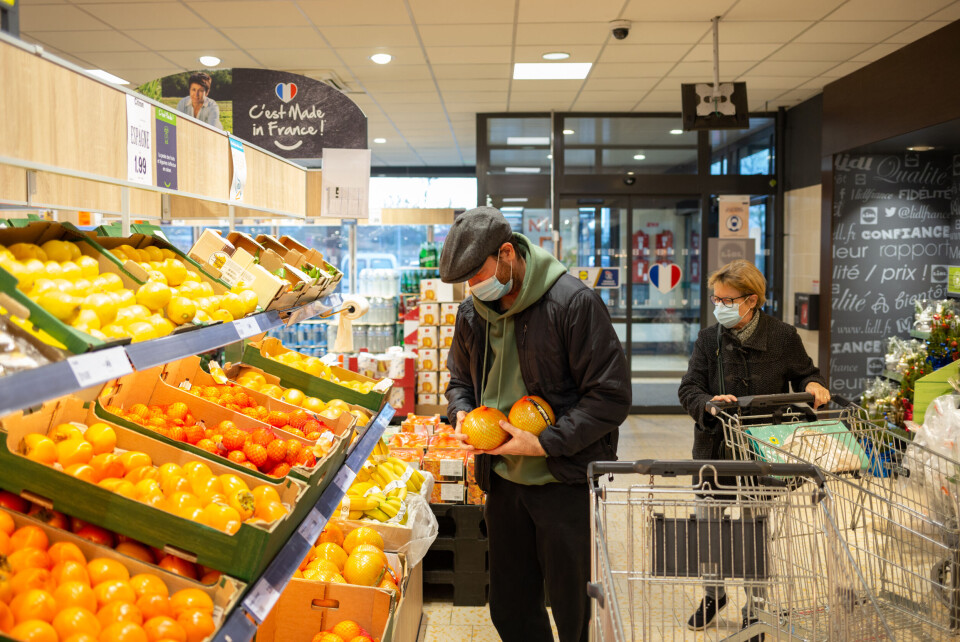-
Mysterious boom rattles residents in south-west France
Local community turns to social media for answers
-
France tightens reimbursement rules for flight delays or cancellations
New measures include mandatory mediation and new claim procedures
-
What snow conditions look like for skiers across French Alps and Pyrenees
Ski resorts are expected to get busier as school holidays begin this weekend
Consumer groups attack France’s anti-inflation measures
French supermarkets are being encouraged to maintain low prices for a selection of essential products, but campaigners say this does not go far enough

Consumer associations have criticised the government’s new anti-inflation campaign, which is now running in several French supermarkets.
A number of chains agreed to offer a selection of essential food products at ‘the lowest price possible’.
The chains have chosen the products, and these are labelled Trimestre anti-inflation (anti-inflation quarter).
Intermarché, Carrefour, Système U, Auchan, Casino, Cora, Lidl and Aldi have all signed up to the programme.
Little to protect consumers from spiralling prices
However, UFC-Que Choisir, Familles Rurales and CLCV say this will do little to protect consumers from spiralling prices.
In an open letter to Prime Minister Elisabeth Borne, they wrote: “Your government has settled for leaving it up to large retailers to limit their profit margin (or to claim to do so through pure marketing).”
They are instead calling on the government to suspend a law which, since 2019, has forced retailers to sell food at prices that are at least 10% higher than they paid.
“It would be contradictory, if not misleading, to claim to be taking action to reduce prices to a minimum, while persisting with a rule which legally prevents food products from being sold at cost.”
The 10% minimum profit margin is meant to ensure farmers are paid fairly.
According to a Senate report, however, the policy costs consumers €600million per year, while “there is no proof that it is effective in securing better pay for producers”.
The measure’s trial phase was due to end this month, but MPs have voted to extend it until 2025. It will no longer apply to fresh fruit and vegetables.
The same bill will extend the maximum 34% discount on food to hygiene products, from March 2024.
14.5% more expensive in February than a year ago
Food products were 14.5% more expensive in February than a year ago, and this is expected to rise further after supermarkets agreed a 10% rise in prices paid to suppliers, following annual negotiations.
The ‘anti-inflation quarter’ will run from March 15 to June 15, and mainly involves basic essentials – often store-brand products for which retailers have more price flexibility.
Carrefour, for example, has blocked the prices of 200 items at an average of €2.
This includes 100 products for ‘daily life’ – including flour, biscuits, and hygiene products – and 100 ‘healthy’ items with a Nutri-Score nutrition rating of A or B, including bread, vegetables and dairy foods.
Casino has drawn up a list of 500 daily essentials that will be kept under €1, including “sweet and savoury cupboard food, carbohydrates and vegetables, cereal, dairy products, bodily hygiene (shower gel, etc), baby care, cleaning products, pet food, etc”.
Related articles
French supermarkets fined a total of €4.5m for uncompetitive practices
‘It is madness’: Inflation warning as supermarkets face discounts cap
























